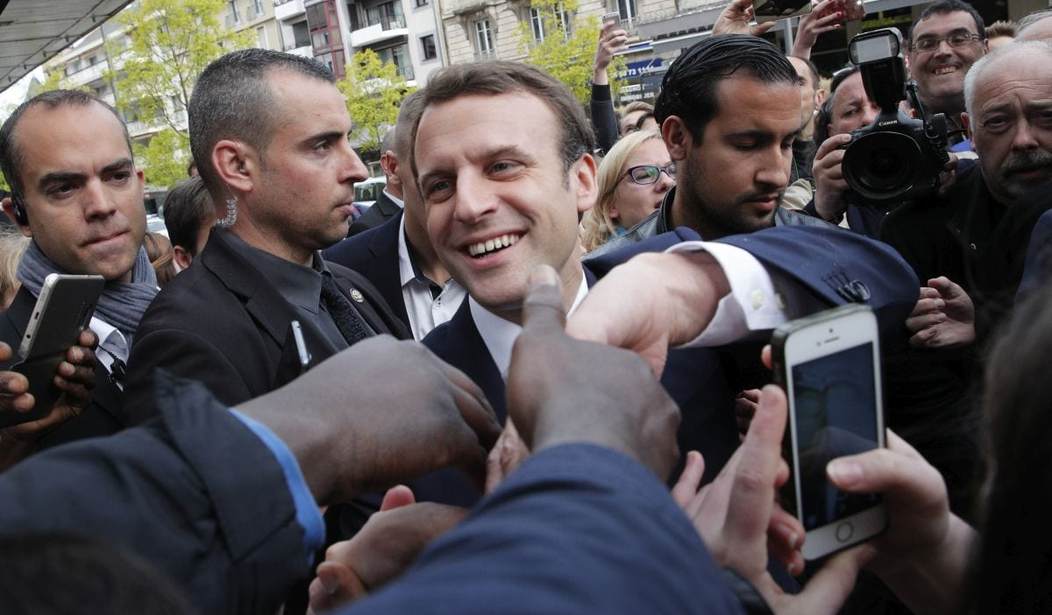The campaign of French presidential hopeful Emmanuel Macron says that he has been the victim of a “massive” email hack that saw thousands of his party’s communications posted on a file-sharing website.
The hack occurred less than two days before the presidential election, which prevents the French media or other candidates from commenting on the substance of the emails. French law prohibits any campaigning in the 48 hours prior to the vote.
As much as 9 gigabytes of data were posted on a profile called EMLEAKS to Pastebin, a site that allows anonymous document sharing. It was not immediately clear who was responsible for posting the data or if any of it was genuine.
In a statement, Macron’s political movement En Marche! (Onwards!) confirmed that it had been hacked.
“The En Marche! Movement has been the victim of a massive and co-ordinated hack this evening which has given rise to the diffusion on social media of various internal information,” the statement said.
An interior ministry official declined to comment, citing French rules that forbid any commentary liable to influence an election, which took effect at midnight on Friday (2200 GMT).
The presidential election commission said in statement that it would hold a meeting later on Saturday after Macron’s campaign informed it about the hack and publishing of the data.
It urged the media to be cautious about publishing details of the emails given that campaigning had ended, and publication could lead to criminal charges.
Comments about the email dump began to appear on Friday evening just hours before the official ban on campaigning began. The ban is due to stay in place until the last polling stations close Sunday at 8 p.m. (1800 GMT).
Opinion polls show independent centrist Macron is set to beat National Front candidate Le Pen in Sunday’s second round of voting, in what is seen to be France’s most important election in decades. The latest surveys show him winning with about 62 percent of the vote.
Former economy minister Macron’s campaign has previously complained about attempts to hack its emails, blaming Russian interests in part for the cyber attacks.
On April 26, the team said it had been the target of a attempts to steal email credentials dating back to January, but that the perpetrators had failed to compromise any campaign data.
The Kremlin has denied it was behind any such attacks, even though Macron’s camp renewed complaints against Russian media and a hackers’ group operating in Ukraine.
Vitali Kremez, director of research with New York-based cyber intelligence firm Flashpoint, told Reuters his review indicates that APT 28, a group tied to the GRU, the Russian military intelligence directorate, was behind the leak. He cited similarities with U.S. election hacks that have been previously attributed to that group.
There’s a problem with the Russian conspiracy theory of the hacks: leaking them now does nothing to undermine Macron’s campaign because the contents of the emails can’t be published. Why would the Russians—if they were looking to influence the election—wait until it was too late for the covert operation to affect the outcome?
That fact undermines the entire narrative of Russians being behind the hack, although it’s possible that Putin is seeking to undermine Macron before he gets into office. But that seems a long shot and wouldn’t justify the risk of Moscow being exposed as the villain in this caper.
The last polls showed Macron with a comfortable lead. Pundit Nate Silver says it would take a “gargantuan” error for the pollsters to be wrong.
In the age of Trump, it is not advisable for pollsters to make such bold predictions.










Join the conversation as a VIP Member